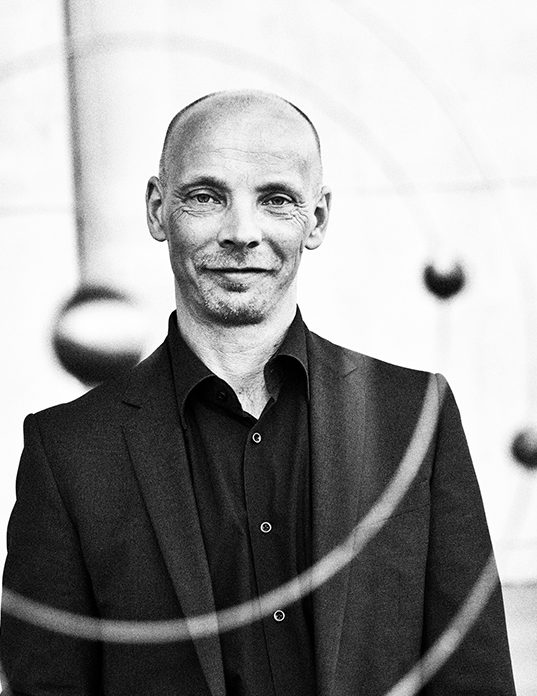An interview with Professor Dr. Dr. Helmut Schneider, director of the Steinbeis Transfer Institute for Digital Transformation and holder of the SVI foundation chair for marketing and dialog marketing at Steinbeis School of Management and Innovation
What changes need to take place in people’s minds for companies to succeed with digital transformation, and does gazing at the moon help? These were just some of the issues touched on in an interview for TRANSFER magazine with Dr. Dr. Helmut Schneider, professor at Steinbeis University Berlin (SHB).
Hello Professor Schneider, everyone is talking about digital transformation at the moment, but getting it to work is still a major challenge for companies. What changes do you feel need to take place in people’s minds for companies to master the process of digital transformation?
I’d summarize it with a combination of three things – accept, understand, and shape. Digital transformation is going to happen whether we like it or not. That’s why I say accept it. Second, people need help in interpreting what is happening. When people are talking about digital transformation in public, everyone agrees that it has a huge impact, but not enough is understood about what that change will bring about in detail. It’s quite logical for people to be scared of things they don’t know. And thirdly, once you have a foundation of understanding you can identify different ways to shape how we deal with the different changes that will happen.
“Stand on the moon at look at it from that angle!” – this is the sort of thing all of your students get to hear at some point. You say that to challenge them to think about things from a different perspective. Do people have time for things like that in an era of digital transformation?
How you allocate time when it’s in short supply is about how you set priorities. Just saying “I haven’t got time for that” is simply a reflection of the priorities you set. True, in a world of digital technology the clock does tick more quickly than in the analog world. I once wrote something on the blackboard at a start-up, a different angle on an old saying: “better never than late!” But even in digital times the angle you take on things changes people’s understanding. And sometimes it’s just important to check the key interdependencies and not just start making decisions. To do that, you have to “look at things from the moon.”
What impact is digital transformation having on the world of marketing, and what can a business do to benefit from these changes?
This is a broad issue. Even the marketing world is undergoing fundamental and sweeping change as a result of digital technology. The way it looks to me, on the one hand some of the things that create value are coming under pressure from digital transformation. The value added, for example through lower transaction costs, is much lower in “new digital territory” than in the “old analog territory.” Also, digital technology is making it more difficult to exploit the opportunities presented by accessing information first. So the first thing companies will have to do is work out how digital-proof their existing business models are. But on the other hand, digital solutions open the door to a variety of different options for coming up with radically new business models. In the new digital territory, it’s possible to add value in ways that were not feasible in the old analog territory. So recognizing and seizing opportunities is the second key challenge.
A company is only as good as the people who work there, but they’re also affected by digital transformation because digital solutions are omnipresent. What impact is this having on the world of work, and what opportunities or threats does this present?
This is also a broad issue. My understanding of digital transformation is that it’s about translating things into machine language; to make this more tangible I’ve come up with eight laws of digital consequence. Two of those laws – the explosion in speed and the emancipation of space and time – probably have a major impact on the world of work. The analog parts of a process, which I think include human decision-making, come under tremendous time pressures in a digital world. Emancipating space and time is leading to new ways to distribute work and organize tasks. Ultimately, certain types of human work will be replaced by algorithms. The people who are affected by this may see it as a threat, but substitution comes with tremendous leaps in productivity so for society as a whole that’s an opportunity. I think one result will be that these developments will place more emphasis on the current debate in society regarding new performance and distribution paradigms – and I’m thinking about an unconditional basic income. This is something I would welcome wholeheartedly.
Contact

Professor Dr. Dr. Helmut Schneider
Professor Dr. Dr. Helmut Schneider is director of the Steinbeis Transfer Institute for Digital Transformation. The Steinbeis Enterprise offers its customers research services, solutioncentric consulting, applicationbased research, and training and education services in the field of digital transformation.
Professor Dr. Dr. Helmut Schneider
Steinbeis-Transfer-Institute Digitale Transformation (Berlin)

